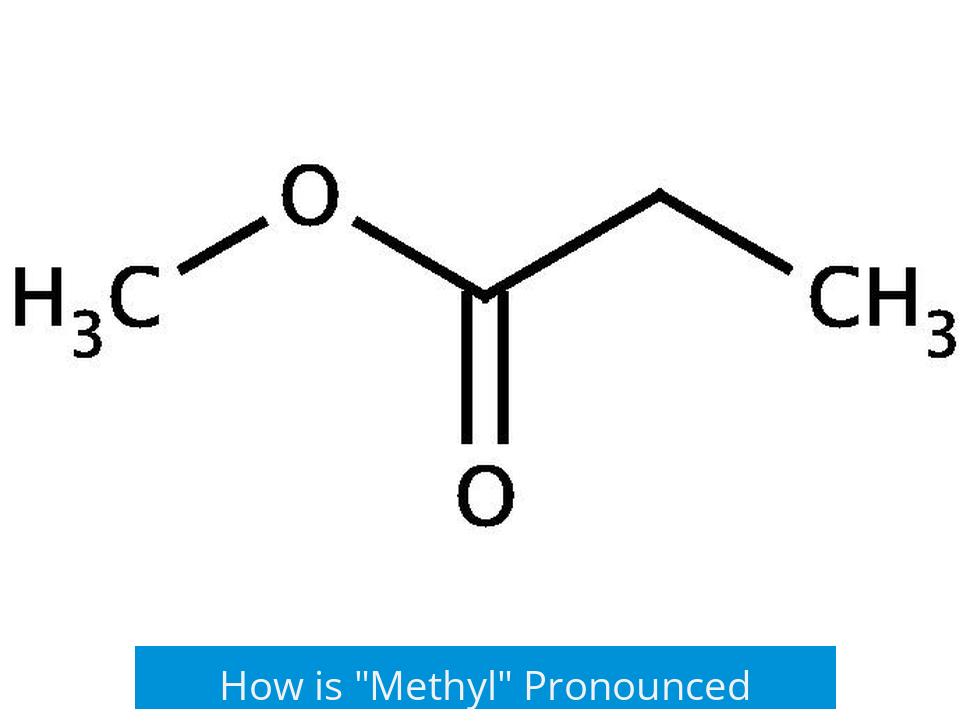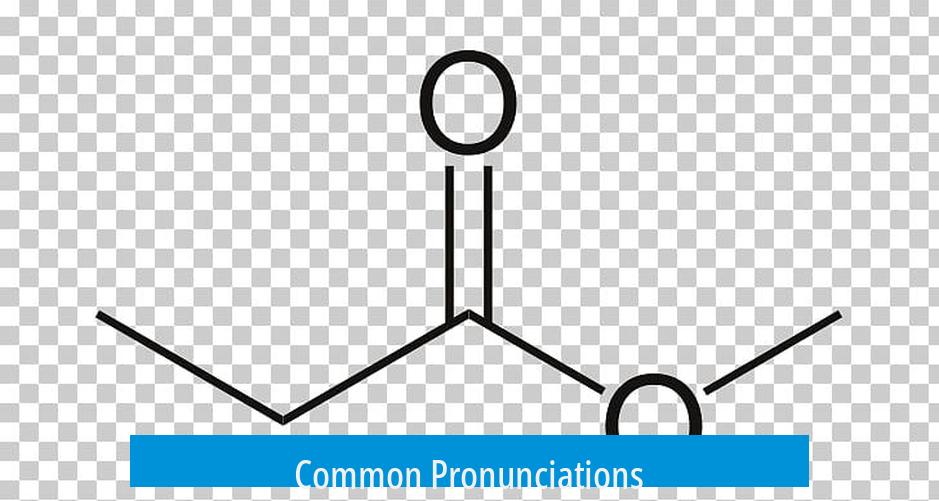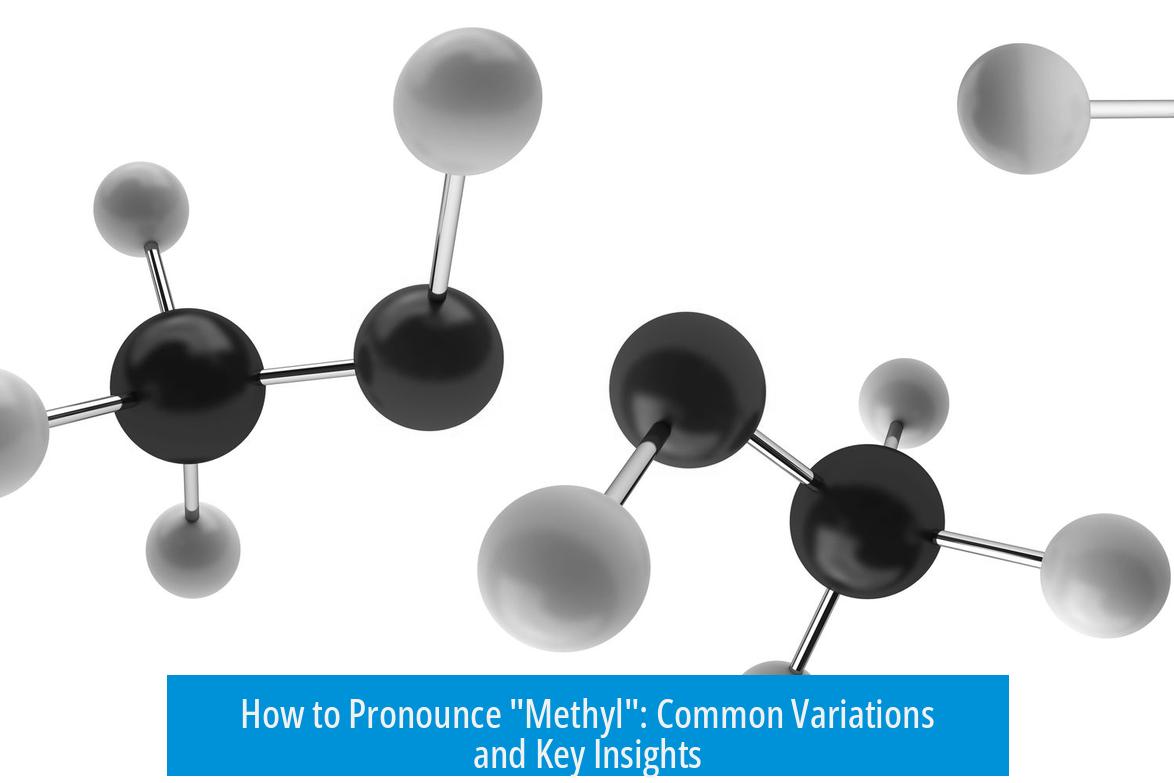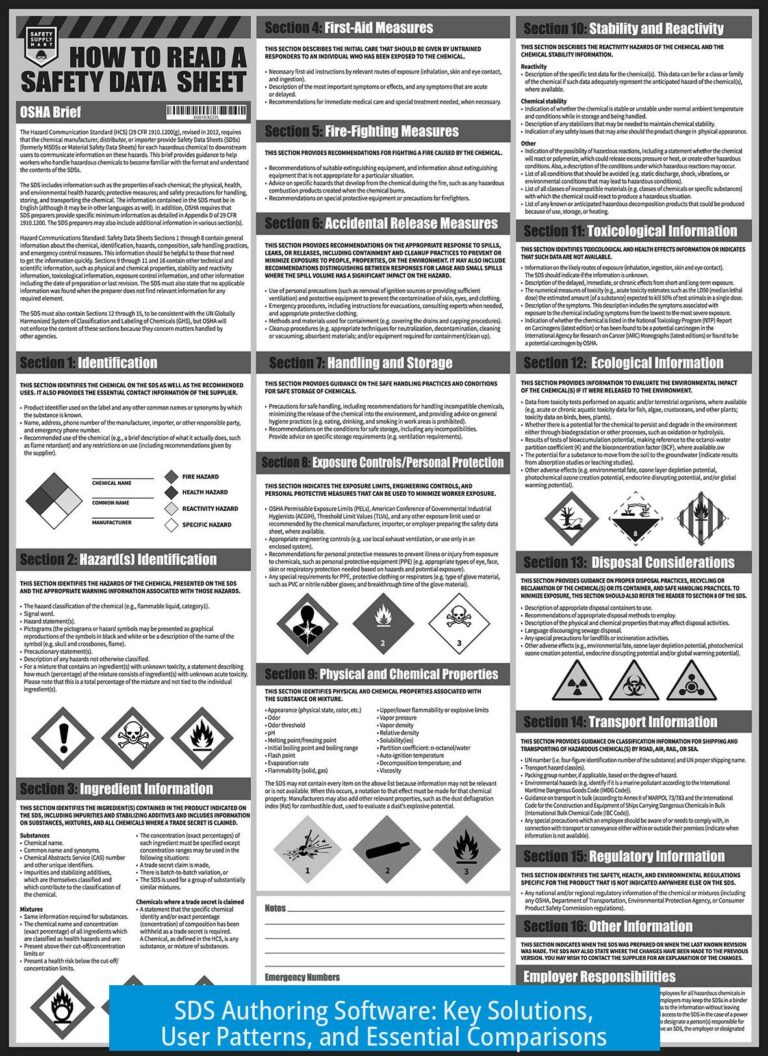How is “Methyl” Pronounced?

“Methyl” is pronounced primarily in two ways: the common American pronunciation as “meth-il” and a British variant sounding like “meeth-ile” or “mee-thile.” Both are correct, reflecting regional speech differences without a universally accepted standard.
Common Pronunciations

- American/Non-British: Pronounced “meth-il,” where the “e” sounds like in “elephant.” This is widely used by chemistry students and professionals in the U.S.
- British: Pronounced “meeth-ile” or “mee-thile.” This variant aligns with other British pronunciations such as “aluminium” and “phenyl” (phee-nile) and “ether” (eeth-er).
These differences mirror general distinctions between British and American English in chemical terminology.
Variation in Pronunciation
There is no single correct pronunciation of “methyl.” Pronunciation depends on regional accents and personal preference. Neither form is considered wrong, and both are widely understood in scientific contexts.
Related Terms for Context
| Term | British Pronunciation | American/Other Pronunciation |
|---|---|---|
| Phenyl | Phee-nile | Fen-ill (less common) |
| Ether | Eeth-er | Eth-er |
These examples reinforce how British English tends to use longer vowel sounds in chemical names.
Pronunciation Origins and Notes
The pronounced differences often reflect historical or regional language influences. For example, the British pronunciation of “aluminium” differs from the American “aluminum,” partly due to early spelling variations in chemistry literature.
Overall, while the exact language origin of “methyl” does not strongly dictate pronunciation, regional language habits develop over time and influence preferred speech.
Key Takeaways
- The most common pronunciations of “methyl” are “meth-il” (American) and “meeth-ile” (British).
- There is no single correct pronunciation; both forms are accepted.
- British English tends to use longer vowel sounds in chemical terms.
- Pronunciation differences reflect regional variations, with no impact on scientific meaning.
- Similar patterns appear in terms like phenyl and ether, illustrating broader pronunciation trends.
How is “methyl” Pronounced? Unpacking the Mystery with a Dash of Chemistry Flair
How is “methyl” pronounced? The answer isn’t carved in stone. It varies by region, culture, and whether a chemist is around to correct you. Imagine chemistry as a party where everyone speaks the same language but with different accents. “Methyl” is the perfect example of this linguistic party trick. Let’s dive into how you might hear it and why no one’s quite right or wrong.
First, for those who’ve stumbled upon this word in a lab report or heard it tossed casually in a science chat, the pronunciation might seem straightforward. Spoiler: it’s not.
British vs. American: A Pronunciation Showdown
British English can feel like a tongue twister sometimes, and “methyl” is no exception. Some Britons pronounce it as “meeth-aisle”. Yes, it sounds oddly poetic. You may also hear it as “mee-thile” or even “ee-thile”. Odd? Absolutely. But those variations are the norm across the pond. It’s a bit like how “aluminium” in the UK has that classic extra syllable “alyoumini-um”, while Americans got their spelling and pronunciation tangled into the smoother “aluminum.” This quirk traces back to an old chemistry book’s blunder, proving history loves messing with our tongues.
Across the Atlantic, the standard tends to be far more direct and, frankly, easier on the jaw. Most Americans and others say it as “meth-ill,” with the “e” sounding like the “e” in “elephant.” Simple, clean, and to the point. A third-year chemistry major tells us they have never heard it pronounced any other way. You can almost sense the no-nonsense vibe of American English in this pronunciation.
Is There a Single Correct Pronunciation?
Nope. There isn’t a single, blessed pronunciation etched into chemistry textbooks or etiquette guides. It’s just how language works. English, both British and American, is wonderfully weird and adaptable. The fact that there’s no ‘correct’ pronunciation isn’t a bug; it’s a feature. Chemistry terms often have roots in Greek, Latin, or old European languages, so regional accents shape how each word lands on the ears.
So, if you catch yourself saying “meeth-aisle” or “meth-ill,” don’t break a sweat. Neither is wrong. They’re just different flavors of the same word. What really matters is that you’re talking about that vital little chemical group that’s part of so many compounds—from fuels to medicines.
Pronunciation Relatives: Phenyl and Ether
If you thought methyl’s pronunciation was quirky, check out its chemical cousins “phenyl” and “ether.” In Britain, “phenyl” often sounds like “phee-nile,” but elsewhere it might be “phen-ill.” Same goes for “ether,” which can be “eeth-er” in the UK or “eth-er” in America. These variations echo the exact divide seen with “methyl.”
Why fuss over these differences? Because they highlight how language and science dance together with regional flair. It’s a reminder that terminology is influenced not just by science but by culture and history.
Fun Fact: Why “Aluminium” Got Messed Up
Remember the quirky “al-yoo-MIN-ee-um” vs. “a-LOO-min-um” fiasco? It’s a great example of how a spelling error cascading through time creates linguistic splits. Something similar could explain why we hear “meeth-aisle” in the UK and “meth-ill” in the US. It’s a linguistic ripple effect with roots reaching back to chemistry’s early days and the documents that tried to make sense of it all.
What’s the Language of Origin for “Methyl”?
The term itself comes from the Greek word “methy,” meaning wine, with “-yl” as a chemical suffix indicating a radical or group. This historical background doesn’t directly determine pronunciation but adds a dash of heritage into the mix. Maybe it’s the ghost of Greek philosophers nudging British dialects toward melodic pronunciations. Or perhaps it’s just how English evolves—Messy, unpredictable, but always fascinating.
Tips for Pronouncing “Methyl” Like a Pro
- If you’re in the UK, try “mee-thile” or “meeth-aisle” and watch the science folks nod knowingly.
- In the US and most other places, stick with “meth-ill.” It’s clear, concise, and accepted widely.
- Is your audience confused? Just say “the methyl group” slowly and move on. Chances are, only linguists care.
At the end of the day, does your pronunciation of “methyl” affect your experiments? Not really. Chemistry doesn’t judge your accent. It cares about results, measurements, and reactions.
In Conclusion: Pronounce It Your Way and Keep Calm
So how is “methyl” pronounced? The honest truth is there’s no definitive right or wrong. British English offers a charming variation that sounds almost musical, while American English goes for a more straightforward approach. Both are perfectly fine.
Next time you say “methyl,” think about the rich history and cultural quirks behind the word. It’s a tiny reminder of how language and science intermingle. So whether you say “meeth-aisle” or “meth-ill,” you’re part of a fascinating linguistic tradition thriving in the scientific world.
Ready to impress at your next chemistry seminar? Pop the question: “How *do* you pronounce methyl?” And enjoy the diverse symphony of answers.
How is “methyl” pronounced in British English?
In British English, “methyl” is often pronounced as “meeth-aisle” or “mee-thile.” This pronunciation is distinct and commonly heard in the UK, similar to how “aluminium” is pronounced there.
What is the common American pronunciation of “methyl”?
Most Americans pronounce “methyl” as “meth-ill,” with the “e” sounding like the “e” in “elephant.” This is typical among students and professionals in chemistry.
Is there a single correct way to pronounce “methyl”?
There is no single correct pronunciation of “methyl.” Variations exist based on region and personal preference, so both British and American versions are accepted.
How do pronunciations of related words like “phenyl” and “ether” compare?
Similar to “methyl,” British pronunciations of “phenyl” and “ether” differ from American ones. In Britain, “phenyl” sounds like “phee-nile,” and “ether” like “eeth-er.”
Does the origin of words influence the pronunciation of “methyl”?
The language or historical origin of a word like “methyl” can affect pronunciation, but it does not dictate a fixed way. For example, pronunciation of “aluminium” varies due to historical spelling errors.




Leave a Comment